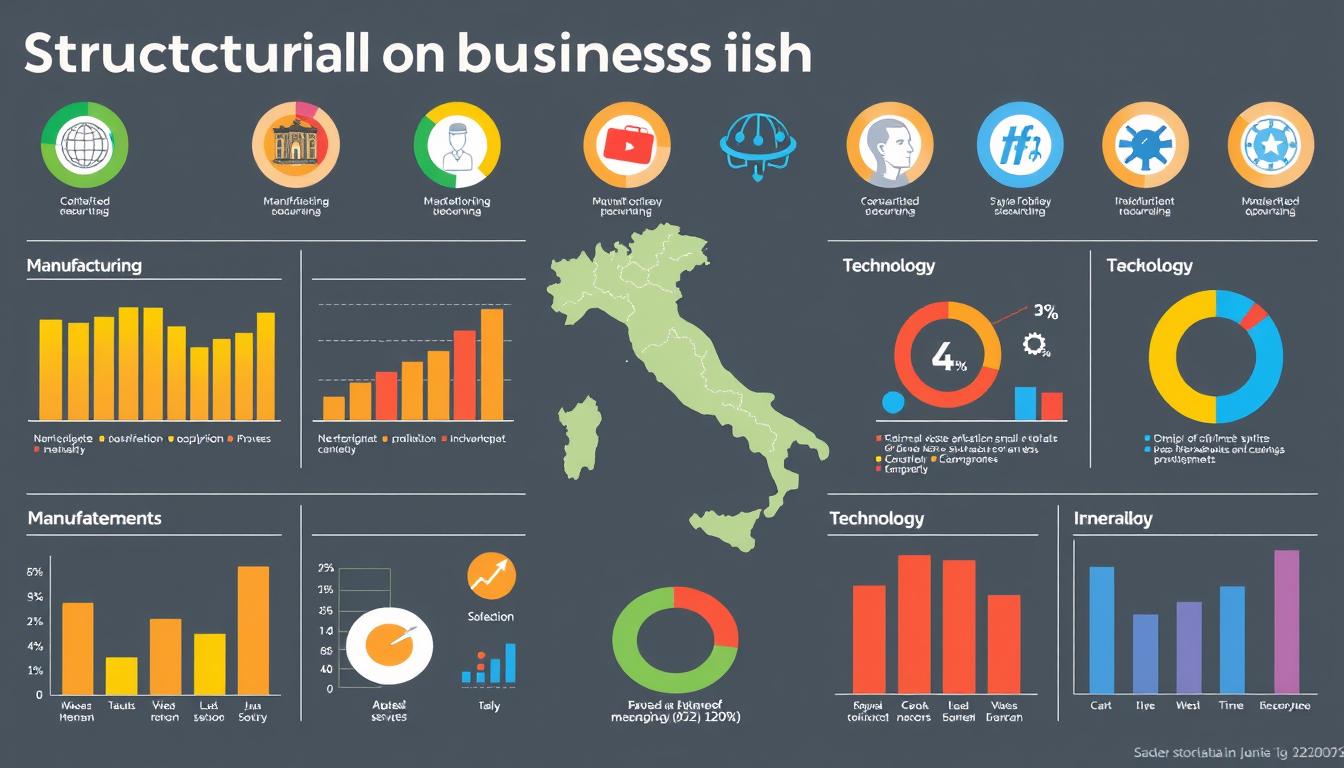Italy
At LerriHost, we help grow your business in Italy with a wide range of services. If you’re thinking about entering the Italian market or starting a business here, we’ve got you covered. Our team guides you from the first steps to when your business is up and running.
- Why Consider Italy for Business Expansion?
- Understanding the Italian Market
- Legal Framework for Business in Italy
- Selecting the Right Business Structure
- Financing Your Business Expansion
- Building a Network in Italy
- Importance of Local Partnerships
- Marketing Strategies for Italy
- Hiring in Italy
- Logistics and Distribution in Italy
- Navigating Cultural Differences
- Technology and Innovation Landscape
- Challenges of Expanding into Italy
- Sustainability Practices in Italy
- Success Stories of UK Businesses in Italy
- Future Trends in the Italian Market
- Conclusion: Embarking on Our Italian Journey
Italy is a great place for UK businesses to succeed. Our team is ready to help you make the most of this chance. We offer support from setting up your company to helping with finances, all tailored to your needs.
Why Consider Italy for Business Expansion?
Italy offers huge benefits for business growth. Its economy, location, and culture make it a great place for investors. Businesses can find many opportunities here and enter the European market.
Economic Landscape
Italy’s economy is varied, with sectors like manufacturing, agriculture, fashion, and tech. This variety means there are many investment chances for different businesses. Plus, being part of the EU Single Market makes it easy to trade and move goods and people.
Strategic Location
Italy’s location is perfect. It connects Europe and Africa, giving it a big advantage. The country has great transport links, making it easy to move goods and people. This makes Italy a key spot for businesses aiming to reach global markets.
Cultural Appeal
Knowing the Italian business culture is key. Italy’s rich heritage adds to its appeal and is important for business. By understanding local customs, companies can build strong, lasting relationships, which are vital for success.
Understanding the Italian Market
The Italian market is full of chances for businesses wanting to grow. Our analysis shows trends in tech and green products are promising. But, to do well, you must know the local markets and what Italian consumers like. This is shaped by culture and the economy.
Market Trends
Looking at recent trends, Italy’s growth in tech and green products is clear. Retail sales went up by 0.7% in value in 2024. But, sales volume dropped by 0.4% from the year before. The farming sector saw a 1.4% increase in production and a 3.5% rise in value added.
Consumer Behaviour
It’s key to understand what Italian consumers want. They’re moving towards eco-friendly choices, following a global trend. They also value quality, craftsmanship, and heritage, which affects their buying habits.
Regional Differences
When we look at Italy’s regions, we see big differences. The North, being more industrial, wants luxury and tech. The South, with its focus on farming, values traditional goods. Knowing these differences is vital for successful marketing and product placement.
Legal Framework for Business in Italy
Starting a business in Italy means you need to know the law well. You’ll have to deal with Italian business rules, register your company, and handle taxes. Knowing these things helps your business run smoothly.
Company Registration Process
The first step is registering your company in Italy. It’s a detailed process with several important steps. You’ll need to get permits and register with the Italian Business Register.
Getting help from experts can make things easier. They guide you through each step, making sure you follow all the rules.
Taxes and Duties
Handling taxes in Italy is key. The country has a tax system with rates from 23% to 43% for income tax. Employers pay 27% to 32% of the salary in social security, while employees pay 9-10%.
It’s also important to know about regional taxes. These can be between 1.23% and 3.33%. This helps with planning your finances.
Compliance Regulations
Following Italian business laws is a must. Breaking these rules can cost you about €3,000 per time, with a 7% increase each year. Companies with over 50 staff must also report on gender equality every two years.
Italy takes these rules seriously. It’s part of the EUROVOICES dataset, which checks these laws across the EU.
Selecting the Right Business Structure
Choosing the right business structure is key to success, more so in Italy. Each structure has its own benefits and legal duties. We’ll look at sole proprietorships, partnerships, and limited liability companies.
Sole Proprietorship
Sole proprietorships are simple and cheap in Italy. They’re great for small businesses or solo entrepreneurs. But, the owner risks losing personal assets if the business fails.
Despite the risks, this setup is popular for its ease and low rules. Owners report income as personal earnings, making taxes simpler.
Partnerships
Starting a partnership in Italy is a bit harder and more expensive than being a sole proprietor. Partners agree on roles, duties, and how to share profits. It’s good for businesses needing more money and skills.
But, partners could be liable for debts, so clear agreements are vital. Partnerships offer diverse skills and shared resources but need careful planning and legal advice.
Limited Liability Companies
Limited liability companies (LLCs) are more complex but offer big benefits. They protect personal assets from business debts. This makes them great for attracting investors, as they can sell shares.
But, LLCs in Italy face strict rules. They must keep detailed financial records and report to tax authorities regularly.
It’s wise to talk to legal experts before starting a business in Italy. Choosing the right structure for your needs is essential for your business’s success.
Financing Your Business Expansion
Expanding our business to Italy is full of opportunities. A solid financing plan is key to success. We can choose from bank loans, Italian venture capital, or business grants Italy offers. It’s important to know each option well.
Bank Loans and Financing Options
Bank loans are a common choice for entrepreneurs in Italy. Banks offer different loans, like term loans and working capital loans. These loans give stability and clear repayment plans, but they need a good credit score and collateral.
Venture Capital
Italian venture capital is another financing option. Investors give money for a share of the business. It’s great for startups with big growth plans and those not getting bank loans. The EIC programmes helped 230 deals from 2021 to 2024, investing EUR 362 million.
Government Grants
Italy has government grants for innovation and going global. Grants don’t need to be paid back, making them appealing. But, the application is tough and needs a strong proposal. Getting a grant can really help our project without debt. Learning about expanding to Italy can help use these grants well.
Finding the right financing is key to success in Italy. With good planning, our business can do well in the Italian market.
Building a Network in Italy
To succeed in Italy’s business world, having a strong network is key. Making strategic connections through different channels can give us an edge. Joining events and using our current contacts can boost our business and market standing.
Business Associations
Joining business associations in Italy is a smart move. Groups like Confindustria and the Italian Chamber of Commerce are great for networking. They offer many resources and chances to meet local businesses, helping us gain credibility and understand the market better.
Trade Fairs and Expos
Taking part in Italian trade fairs, like MAPIC Italy, can really help us get noticed. With 2,100 attendees, 75 exhibitors, and 700 retailers, these events are perfect for finding new opportunities. In 2025, MAPIC Italy will have 30 conferences on industry trends and various themed areas.
Networking Events
Going to networking events is essential for making real connections. These events let us meet possible clients and partners and learn about the latest market news. From business breakfasts to specific industry meetings, they’re great for networking in Italy. Getting early bird discounts can help us plan better.
In summary, combining business associations, trade fairs, and networking events is vital for success in Italy. These methods help build trust, make market entry easier, and lead to growth and partnerships.
Importance of Local Partnerships
Building strong partnerships in Italy can make it easier for foreign companies to enter the market. These partnerships give valuable insights into the local market, culture, and rules. They also help businesses fit in better, paving the way for long-term success.
Finding the Right Partners
Finding the right partners in Italy is key. Look for those who know the local market well and share your business goals and values. Joining local business groups and attending networking events can help you find the right partners. This way, you can make sure your collaborations help grow your business.
Joint Ventures vs. Alliances
Choosing between joint ventures and alliances depends on your business needs. Joint ventures mean sharing ownership and risks. Alliances, like partnerships or agreements, are more flexible. The right choice depends on your goals and the market you’re in.
Navigating Cultural Barriers
Understanding Italian culture is vital when doing business there. Knowing the local customs and communication styles helps avoid misunderstandings. Showing respect for the culture builds trust, which is key for successful partnerships.
Local partnerships are incredibly valuable. They help with market entry and build lasting alliances that grow your business. For more advice on doing business in Italy, see our guide on doing business in Italy
Marketing Strategies for Italy
In today’s fast-paced market, making effective marketing plans in Italy needs a deep understanding of local tastes and habits. It’s vital to mix digital and traditional ads to fit the Italian culture.
Branding Considerations
For branding in the Italian market, being real and culturally relevant is key. Italians love heritage, skill, and top-notch quality. By adding these to your brand story, you can grab their attention. Working with respected local brands can also boost your trustworthiness.
Digital Marketing Trends
Digital ads in Italy are changing fast, with a big move to social media like Instagram and TikTok. These sites are great for reaching young people with fun, engaging content. Companies that use digital marketing see a 30% rise in fan interaction, showing its power.
Using videos, teaming up with influencers, and sharing content from fans can make your online presence stronger.
Local Advertising Channels
Even as digital ads grow, old-school methods like newspapers, radio, and billboards are key. They help reach older folks and those not online as much. Local partnerships are also vital for understanding Italy’s rules and reaching more people.
Mixing digital and traditional ads gives you a wide reach and makes your brand more visible.
Hiring in Italy
When you’re looking to grow your business in Italy, it’s key to know the employment rules. Italian labour laws cover a lot, from contracts to benefits and rights in the workplace. It’s vital for any company wanting to hire well in this market to follow these rules closely.
Understanding Labour Laws
Italy’s employment laws are strict. The standard workweek is 40 hours, but it can go up to 48 hours in some cases. You must pay at least 10% more for overtime.
There’s no national minimum wage, but wages are set by sector agreements. These agreements usually mean workers earn between €7 and €9 an hour. Employers pay about 38% of an employee’s salary, while employees pay around 10%.
Workers get at least 22 days off a year and 12 public holidays. Pregnant women get 5 months of paid leave at 80% of their salary. New dads get 10 days of paid leave too.
Recruitment Strategies
To find the right people in Italy, use job boards and recruitment agencies. Italy’s job ads have gone up by 9% recently. This is a big jump from before the pandemic.
Companies should also use online job sites and university career services. Being active online and at networking events can help too. It’s smart to know the local economy and tailor your approach to find the best talent.
Employee Benefits
Italy’s employee benefits are wide-ranging and required by law. Workers get paid sick leave for up to 180 days. The pay varies with how long they’re off.
There’s also 11 months of unpaid parental leave, with 30% of salary covered by Social Security. If a job ends, workers get severance pay. This pay is based on their salary and how long they’ve worked.
To grow your business in Italy, you need to understand the labour laws, plan your hiring well, and offer good benefits. This will help you build a strong and dedicated team. For more tips on growing your business in Italy, see this guide and this info on choosing the right business structure here.
Logistics and Distribution in Italy
The Italian logistics industry is key to the country’s economy. It’s worth about €20 billion, making up 10% of Italy’s GDP. It also employs around 1.5 million people. A strong transport network, good supply chain management, and modern warehouses are essential for its success.
Transport Infrastructure
Italy’s transport system is well-developed, ranking 7th in the European Union. Most goods, about 80%, are moved by road. Rail transport handles around 10% of goods. This network helps goods move quickly across the country and to other markets.
Supply Chain Management
Effective supply chain management is vital for Italian businesses. In 2022, over 50% of logistics companies saw growth in e-commerce services. Italy’s high ranking in logistics performance means firms can cut costs and speed up deliveries.
Warehouse Solutions
The need for warehousing space in Italy has grown by 15% in two years, mainly in cities. This shows the importance of strategic warehousing solutions. By 2025, investment in modern, tech-enabled warehouses is expected to hit over €1 billion. This will help businesses improve storage and distribution efficiency.
Navigating Cultural Differences
Knowing about Italian business etiquette is key when working in Italy. Italians cherish personal connections and respect for those in charge. Understanding these values can make our interactions better and help us communicate well.
Workplace Etiquette
In Italy, dressing formally is expected for business meetings. Men wear dark suits, and women choose elegant suits or skirts. Being on time is not as important, but setting clear deadlines is.
It’s best to use titles and last names until you’re told to use first names. This shows respect.
Communicating Effectively
Good communication in Italy is more than just speaking the language. While many Italians speak English, knowing some Italian helps. They use gestures to make points clear.
Eye contact is important to show you’re engaged. At first meetings, you might talk about small things to get to know each other.
Building Relationships
Building strong business relationships in Italy takes time and genuine interest. Trust is key, so it may take a while to build these connections. Giving gifts is usually done when you’ve earned someone’s trust.
Gifts should be modest and not too expensive. Joining in social events and respecting Italian traditions helps build strong business ties.
Technology and Innovation Landscape
The Italian technology sector has grown a lot in recent years. It now makes up 6.8% of Italy’s GDP in 2023. This is expected to rise to 8.5% by 2024. We see big advancements and new chances shaping Italy’s future.
The Role of Technology
Technology is key to driving innovation in Italy. The number of ICT specialists in Italy is 4.1%, a bit lower than the EU average. For every new tech job, 2.5 more jobs appear in other sectors, showing tech’s wide impact.
AI and Machine Learning are growing fast. The AI market is set to hit $17.34 billion by 2030, growing 28.51% each year. Machine Learning is expected to reach $10.60 billion by 2030, growing 36.07% annually. Using AI in healthcare could save Italy €21.74 billion each year.
Emerging Sectors
Biotech, fintech, and green energy are leading the way in Italy. These sectors are changing the Italian economy. IoT, blockchain, and ERP software are also growing fast, showing Italy’s strong innovation.
The IoT market in Italy is expected to grow 8.56% each year, reaching $23.16 billion by 2029. The global blockchain market is set to grow to $39.7 billion by 2025. ERP software revenue in Italy is forecast to hit $588.80 million by 2024.
Collaborations with Local Tech Firms
Working with local tech firms in Italy can give a big advantage. The EIT Manufacturing South supports SMEs and boosts innovation in Southern Europe, including Italy. The first event in February 2025 at Tecnopolo Manifattura in Bologna had over 100 participants.
The Fondazione Piemonte Innova helps with big tech projects. It focuses on digital transformation, advanced manufacturing, and sustainable solutions. These efforts help bridge the tech gap and support inclusive innovation.
Challenges of Expanding into Italy
Italy offers many chances for business growth, but it also has its hurdles. It’s vital to know and prepare for these obstacles to succeed in the Italian market.
Economic Uncertainty
The Italian economy has faced many ups and downs, leading to economic uncertainty. Despite a forecast of 0.7% GDP growth in 2024, inflation and government deficits are concerns. Inflation is expected to drop to 1.1% in 2024, but could increase again.
Dealing with economic uncertainty in Italy can be tough for businesses. It affects financial planning and investment.
Bureaucratic Hurdles
The complex bureaucratic system in Italy is a major challenge. Over 50% of companies struggle with local regulations and compliance. Setting up a business in Italy can take six to twelve months due to regulatory approvals.
Also, dealing with Italian tax laws can be expensive. It can cost up to 15% of a company’s revenue.
Competition Landscape
Italy’s market is very competitive, with a 30% rise in foreign businesses in the last five years. The hospitality sector saw a big increase in investments in 2024, with over €2.1 billion in hotel investments.
Cultural differences can affect up to 70% of international business operations. It’s key to adapt our products and services to local tastes. Overcoming these challenges requires deep market research and a strong strategy.
Sustainability Practices in Italy
Businesses expanding into Italy must adopt sustainability. Italy’s laws and market demand for green products make this essential. It’s a chance to meet global environmental goals and stand out.
Eco-friendly Initiatives
The textile and clothing sector in Italy is big, with 40,000 companies and 400,000 jobs. It’s also a big source of CO2 emissions. The EU’s Green Deal and “Stitch Together” project aim to make clothes last longer and be recyclable by 2030.
By joining these efforts, companies can make a big impact on sustainability in Italy.
Regulatory Compliance
Italy has strict rules for businesses. The EU TCLF Pact for Skills shows Italy’s commitment to going green and digital. A seminar in Rome brought together industry and union leaders to discuss these goals.
Following these rules helps avoid legal problems and builds trust in the Italian market.
Market Demand for Sustainability
More people in Italy want sustainable products. A survey found 74% of companies worldwide, including in Italy, aim to be carbon neutral by 2050. In Italy, businesses are focusing more on ESG.
Setting up in Italy means tapping into this growing demand. It’s key to include sustainability in business plans.
In summary, businesses going to Italy must focus on sustainability. It’s good for the environment and meets strict rules. For more on starting a business in Italy, check out our guide here.
Success Stories of UK Businesses in Italy
Many UK companies have found success in Italy. They’ve used the country’s unique market chances. These stories teach us a lot, mainly in retail and tech.
Case Study: Retail Sector
DC Singh’s luxury fashion brand is a great example. He started with just £7 and grew into fashion, tech, and real estate. His focus on women’s winter scarves has hit it big in Italy.
He teamed up with top fashion brands. This made Scottish cashmere a global luxury item. His products have been in big fashion shows and celebrities love them. This shows the power of good partnerships and quality in Italy.
Case Study: Technology Sector
The PIB Group is a standout in tech. They bought Elleti Broker S.p.A. This deal added over €700 million in guarantees and more than 1,100 policies. In 2024, they made about €3 million.
Now, PIB Group’s Italy sales are over €35 million. They focus on surety bonds for Italy’s recovery plan. This shows how important buying other companies can be for growth.
Lessons Learned
These stories teach us a lot. First, to succeed in Italy, you need to know what locals want and offer quality. DC Singh’s success shows this.
Second, buying other companies can really boost your business. PIB Group’s growth is a good example. Third, working with local partners is key to success. By learning from these UK successes, other businesses can do well too.
Future Trends in the Italian Market
The future Italian economy is set for big changes. Several key factors will drive this transformation. Businesses need to understand these to succeed in the new landscape.
Growth Sectors
The digital services sector in Italy is growing fast. It’s expected to grow by 14.2% each year. The Buy Now Pay Later (BNPL) market will hit USD 7.64 billion by 2025.
Big names like Klarna, Afterpay, and PayPal are leading the way. Health, wellness, sustainable products, and digital marketing are also booming. These areas reflect the changing tastes of Italian consumers.
Consumer Trends
Italy’s shoppers are now more into eco-friendly and online shopping. The luxury hotel market is booming, with over €2.1 billion in investments in 2024. Cities like Rome, Venice, and Milan are seeing a lot of action.
Investments are mainly in four-star and boutique hotels. This shows a trend towards high-quality, experience-based shopping.
Economic Projections
The Italian economy is expected to grow steadily. GDP will increase by 0.7% in 2024, then by 1% in 2025 and 1.2% in 2026. Inflation will slow down to 1.1% in 2024.
This creates a stable environment for businesses. The debt-to-GDP ratio will rise to 139.3% by 2026. But, it’s manageable under current policies. These forecasts highlight the future Italian economy‘s promise and the need to keep an eye on growth sectors Italy.
Conclusion: Embarking on Our Italian Journey
Expanding your business to Italy is a big step. The Italian market is full of chances and challenges. With top sectors like fashion and engineering, and a lively startup scene in Milan and Rome, Italy is a great place to grow your business.
It’s key to know the local market well. Understanding the culture and market details is essential for success.
Recap of Key Points
We’ve explored the Italian economy, laws, funding, and cultural tips for entering the market. Building personal connections and mastering negotiation are vital. For tech startups, Italy’s support and the Italia Startup Visa are great for innovation.
For more on starting a tech startup in Italy, check out 30countries.
Taking the Next Steps
Expanding your business in Italy needs a smart plan. Start with market research and understanding regional differences. Local partnerships and trade fairs can help your business grow.
Also, knowing about Italian culture, like being on time and dressing right, is important. It can improve your business interactions and help you make lasting connections.
Encouragement to Act
Starting your business in Italy is a great opportunity. With the right knowledge and planning, you can succeed in Italy’s business world. It’s time to take action and use services made for the Italian market. This will help your business grow smoothly and successfully.

Pros and Cons of Expanding Your Business to Italy
Explore the advantages and drawbacks of expanding your business to Italy with our in-depth analysis of market potential and challenges.

Structural business statistics in Italy
In our look at Italy’s economy, we see how key structural business statistics (SBS) are. These stats help us understand ...

Starting a Business in Italy: Branch or Subsidiary?
Thinking about setting up a business in Italy? Choosing between a branch or a subsidiary is key. The structure you ...

Relocating to Italy for business
Uncover the essentials of relocating to Italy for business with our guide on navigating permits, culture, and opportunities in your new Italian venture.

Guide to Starting a Tech Startup in Italy
Embark on your entrepreneurial journey with our expert guide to starting a tech startup in Italy, tailored for UK innovators.

Lucrative Business Ideas to Launch in Italy
Discover top business ideas to start in Italy and explore the most promising opportunities for successful entrepreneurship in this vibrant market.

Essential Guide to Business Banking in Italy
Discover key insights on Business Banking in Italy with our comprehensive guide for UK enterprises seeking to navigate Italian banking practices.

Navigating Business Culture in Italy: Insights
Explore the intricacies of business culture in Italy and gain practical tips for effective engagement in this dynamic market.

Doing Business in Italy: Your Guide to Success
Embark on a lucrative venture with our expert guide on Doing Business in Italy, ensuring smooth operations and triumph.









